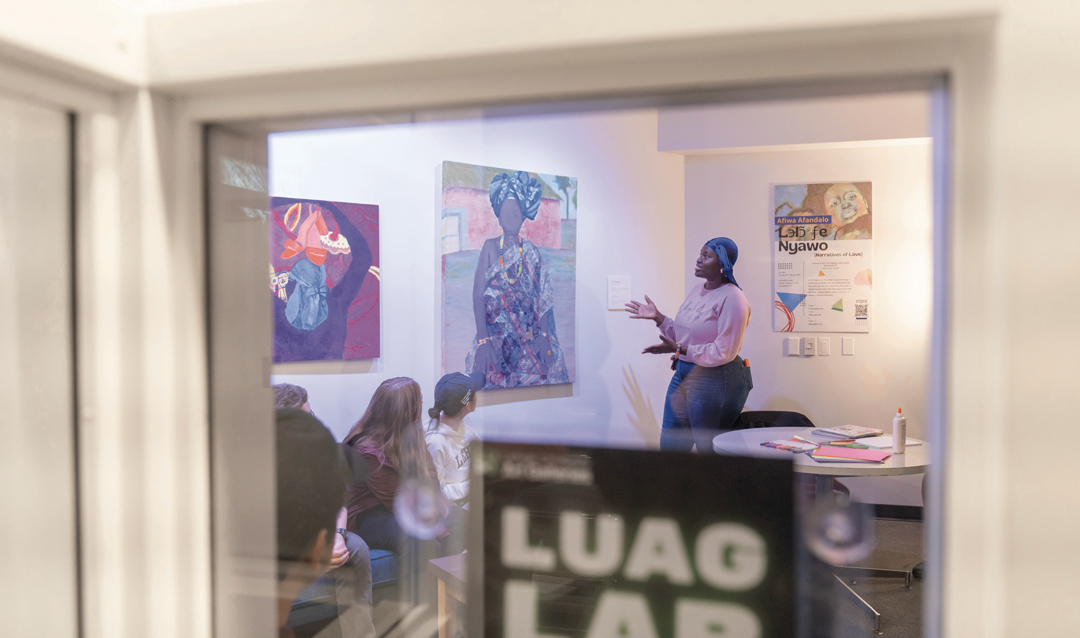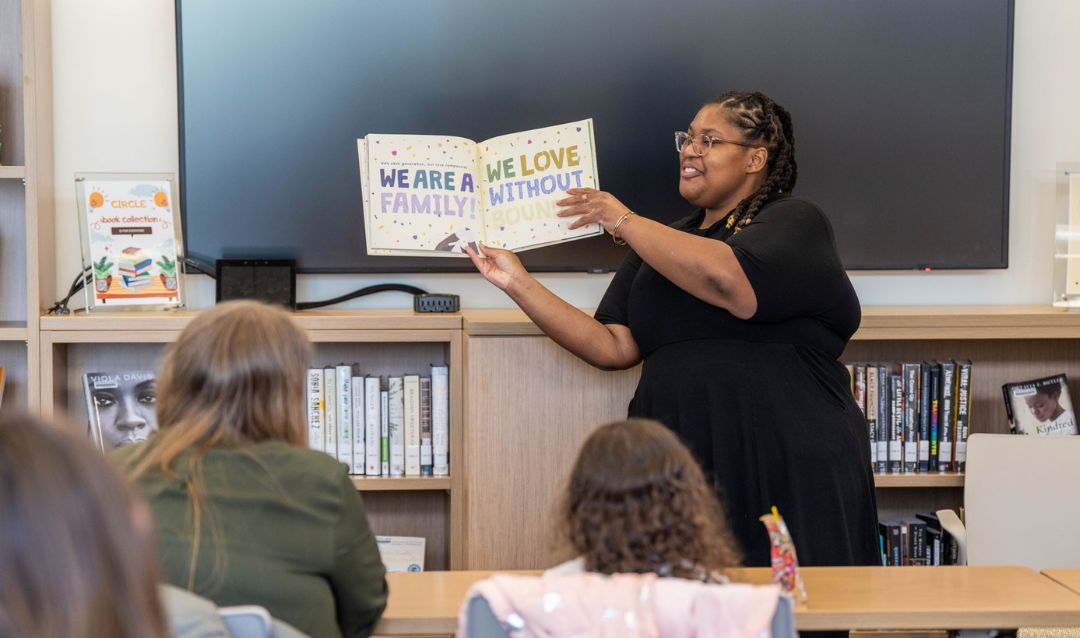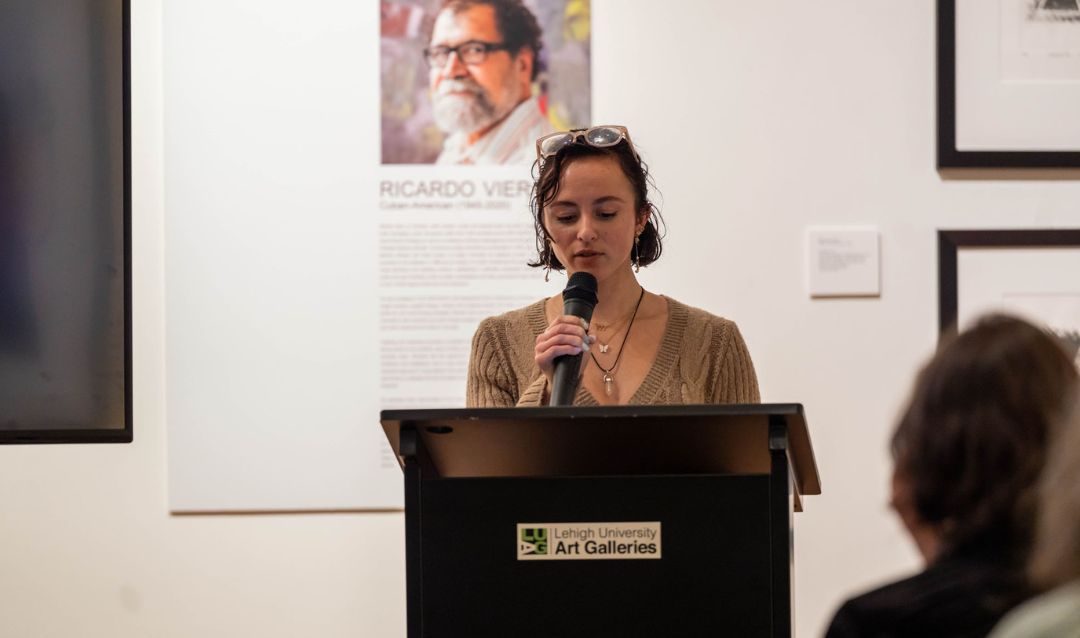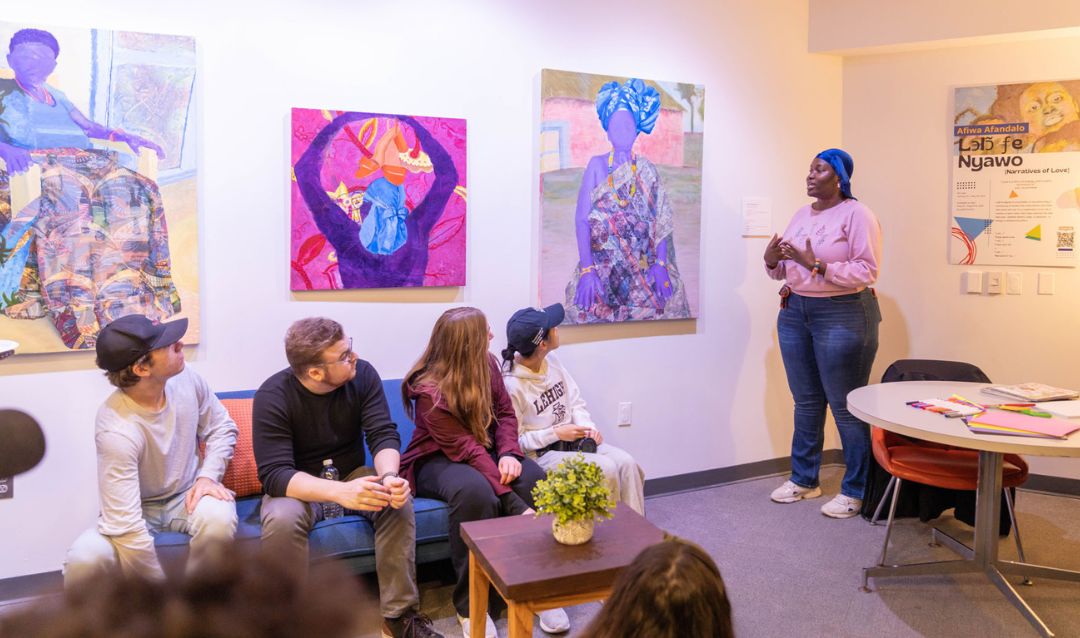The Marcon Institute hosted the inaugural Radical Love conference from March 4-8. Based on the works of bell hooks, the overarching theme of the conference was “Radical Love Ascending,” with thematic programming that showcased Lehigh's commitment to being an antiracist institution.
“We are cultivating lifetime commitments to antiracism and building a community in which all can thrive–one characterized by care, commitment, knowledge, responsibility, respect, and trust,“ said Holona Ochs, director of the Marcon Institute.
The conference kicked off with the theme of “Defeating Destructive Dogmas” and featured a panel discussion moderated by Vera Fennell, associate professor of political science. The panel engaged in critical reflection on hooks’ definition of love and how that can be employed to generate antiracist change. Guests were also invited to a screening of a bell hooks documentary.
“The Art of Radical Love” set the tone for day two of programing. Participants began with a viewing of the Lehigh University Art Galleries exhibit L ɔ l ɔ̃ ƒ e N y a w o (Narratives of Love) by Lehigh student Afiwa Afandalo ‘24.
Introducing poetry readings by Basement Poetry and students in Lehigh’s creative writing program were Stephanie Powell-Watts, associate professor of English; Stacie Brennan, curator of education at Lehigh University Art Galleries; classical guitarist Michael Wall; and Ochs. After, audience members made zines that illustrated art as a form of resistance and expressed notions of radical love, honoring local leaders who have laid the foundation for antiracist change.
“Radical Love as Restorative Justice” programming began with the SOULS of Antiracists breakfast, an opportunity to engage in interfaith dialog about the importance of spiritual wellbeing in the struggle for justice. Rabbi Sholomo Levy, professor of humanities at Northampton Community College, and Tamara Redfern, Associate Director of the Office for Multicultural Affairs at Lehigh, led the conversation, which was an opportunity to grieve and honor individuals lost in the struggle for freedom and a chance to share ideas for acting with love that are informed by diverse ethical and moral traditions.
Jennifer Swann, professor of biological sciences, moderated a panel discussion that included Craig Abramson, provost of the International Institute for Restorative Practices, based in Bethlehem; Bill Whitney, assistant vice provost for experiential learning programs at Lehigh; Jean Garcia, program manager at Promise Neighborhoods Lehigh Valley; and Harrison Dillard, chief of Moravian University’s police department and president of the Hunterdon County NAACP, who discussed what restorative justice is and how to engage in its practices.
The conference culminated on International Women’s Day with the theme of "Embrace Equity." Events included children’s story time with LaToya Council, assistant professor of sociology and Africana studies; and an intersectional feminist writing retreat led by Yvonne Lee, assistant director of graduate writing support, with expert testimony by Natanya Duncan, Director of Africana Studies and Professor of History at Queen’s College.
Jessica Jackson, program manager in the Office of the Provost, focused on event and planning logistics and said attendance exceeded expectations, with events being at capacity or standing room only. Students, faculty, staff, members of the Marcon Institute Advisory Board and local community members were in attendance, which spoke to the collaborative effort of planning the conference.
“The conference was a success because of the dedication of so many collaborators throughout Lehigh University and the Lehigh Valley,” Jackson said. “The diverse perspectives of faculty, staff, students and community members resulted in a conference that wasn’t strictly academic, but rather accessible to all.”
The Marcon Institute has several upcoming events on planned, including an Antibullying Symposium on March 31, 2023. The Institute is also in the process of recruiting its second cohort of Marcon Fellows who will participate in an intensive 10-week summer program that aims to cultivate a community of antiracist scholars as participants network and engage in curricular and co-curricular activities.









